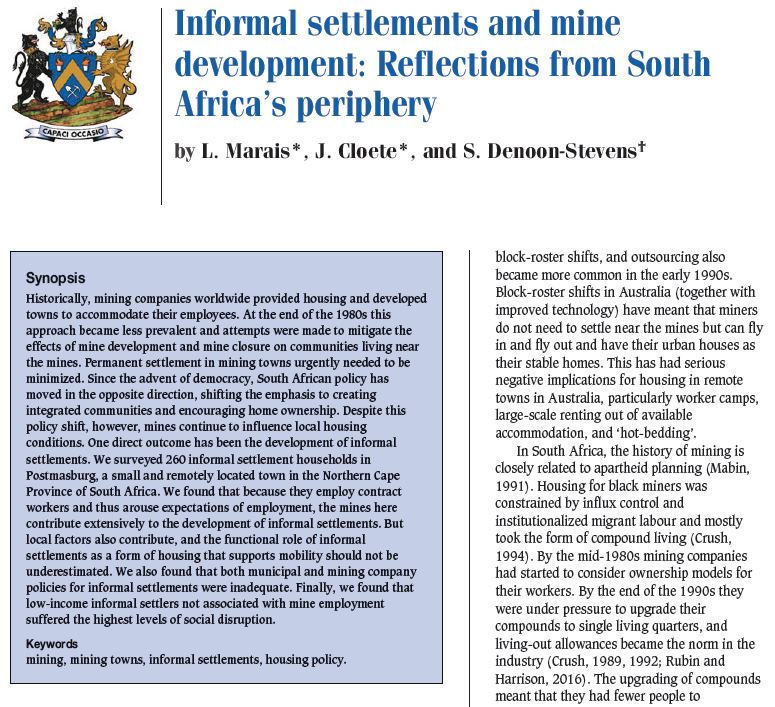Informal settlements and mine development
Reflections from South Africa’s periphery

01 October 2018
Journal of the Southern African Institute of Mining and Metallurgy
English
Journal article
Municipal Capability & Partnership Programme
Africa
Historically, mining companies worldwide provided housing and developed towns to accommodate their employees. At the end of the 1980s this approach became less prevalent, and attempts were made to mitigate the effects of mine development and mine closure on communities living near the mines. Permanent settlement in mining towns urgently needed to be minimized. Since the advent of democracy, South African policy has moved in the opposite direction, shifting the emphasis to creating integrated communities and encouraging home ownership. Despite this policy shift, however, mines continue to influence local housing conditions. One direct outcome has been the development of informal settlements.
The study surveyed 260 informal settlement households in Postmasburg, a small and remotely located town in the Northern Cape Province of South Africa. It was found that because they employ contract workers and thus raise expectations of employment, the mines here contribute extensively to the development of informal settlements. But local factors also contribute, and the functional role of informal settlements as a form of housing that supports mobility should not be underestimated. The study also found that both municipal and mining company policies for informal settlements were inadequate. Finally, low-income informal settlers not associated with mine employment suffered the highest levels of social disruption.
This resource is part of the Mining Towns Collection kindly sponsored by the Municipal Capability and Partnership Programme. Abstract based on source.


Comments